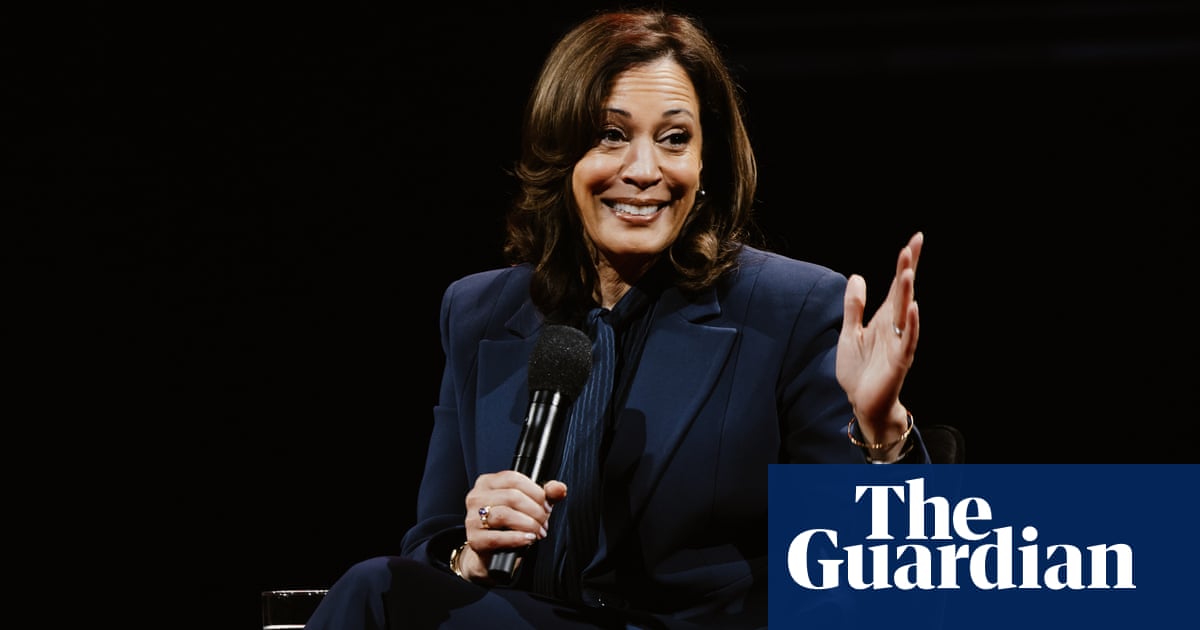Kamala Harris has criticised Elon Musk, noted “it’s important that we remember the 1930s” and raised concerns about AI when speaking to an audience of 4,500 real estate agents at an industry conference on the Gold Coast.
The former US vice president, who is visiting Australia for the first time, was the guest of honour at the 2025 Australian Real Estate Conference on Sunday.
She was interviewed for an hour on stage by thereal estate industry veteran John McGrath.
Without naming Musk, she cited the Trump administration adviser as an example of a person holding “this misplaced idea that the sign of the strength of a leader is who you beat down”.
“There was someone that is you know very popular these days - at least in the press - who suggested that it is a sign of the weakness of western civilisations to have empathy,” she said.
“You know, imagine. No, it’s a sign of strength to have some level of curiosity and concern and care about the well-being of others.”
Musk, the chief executive of Tesla, criticised Harris’s former Democratic administration and its attitude to immigrantsin an interview with podcaster Joe Roganreleased in March.
“The fundamental weakness of western civilization is empathy, the empathy exploit,” Musk said. “They’re exploiting a bug in western civilisation, which is the empathy response.”
Introduced by McGrath as “one of the most successful women in history” with “her best work ahead of her”, Harris joked: “I am unemployed right now.” She walked on and off the stage to a standing ovation and the strains of Beyonce’s Halo.
Harris spoke about her upbringing and career. She shared anecdotes from her time as California attorney general negotiating with the JP Morgan Chase chief executive, Jamie Diamond.
She did not mention by name her successor as vice president, JD Vance, or Donald Trump, or her narrow defeat at November’s election.
Harris concluded with thinly veiled remarks about the new administration’s foreign and trade policies.
“I do worry, frankly, about what’s happening right now in the world,” she said on Sunday.
“I do worry that it is important that we remember history. It’s important that we remember the 1930s. It’s important that we remember that history has taught us that isolation does not equal insulation
“It is important that we understand and remember history, which taught us the interdependence and interconnection between nations.
“History that has taught us the importance of relationships of trust, of the importance of friendships, integrity, honesty.”
She tried to turn personal anecdotes – many taken from her 2019 book – into life lessons for those attending the real estate conference.
Harris said she had often become the first woman in a job – despite discouragement.
“I don’t hear no. I eat no for breakfast. I don’t hear no until maybe the tenth time. I can’t begin to tell you the number of times it has been explicitly or implicitly said to me – it’s not your time. You’re not ready, they’re not ready.
“Don’t you listen. And this is again what I mean about applauding ambition.”
She said Americans distrusted AI because it threatened jobs and risked spreading misinformation.
“It is important to celebrate innovation but, again this may be just the prosecutor in me, one must ask also are there vulnerable people and are we doing what can to ensure they’re safe?”
Other speakers at the conference included UK podcaster Steven Bartlett and Sydney real estate agent David Walker.
AREC is being held at the Gold Coast Convention and Exhibition Centre. It runs until Monday. Organisers would not disclose how much speakers were paid.
